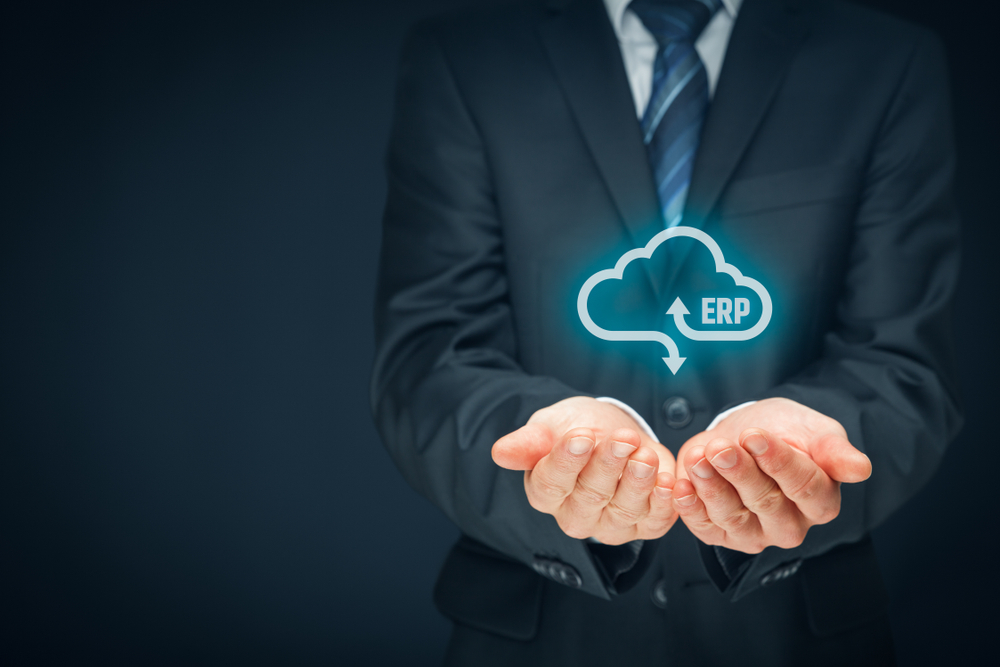Enterprise resource planning (ERP) is by no means a new concept. Companies have used this kind of system for the last 25 years or more, in order to streamline their processes. It can help with project management and making data more accessible and visible.
However, many companies have shied away from investing, and wondered if it is worth their time (and money) in doing so.

Shutterstock Licensed Photo – By Jirsak
Should you invest in ERP systems? Here are a few reasons why it might be beneficial.
What is an ERP system and how has it developed?
An ERP system combines multiple business processes, and means that data can flow between them. An ERP system means that it’s practically impossible for data to be duplicated and it gives a business owner a single idea of how a business is performing across a wide range of areas.
ERP truly began in the 1960s. Then, the concept was related to stock management and control, but purely within the manufacturing sector. However, by the 1970s, this had evolved into ways and means of scheduling production processes.
Once we hit the 1990s, advances in technology meant that human resources and finances were integrated into the systems, and it was during this decade that it saw a rapid expansion. With this expansion came a rise in costs and, moving into the truly digital age of the millennium cybersecurity and added hacking threats, meant that professional ERP system management companies moved to using cloud-based technology.
Also Read
Can ERP work successfully in the cloud?
Yes, it can. It runs on a network of servers that are based remotely inside the server room of a company. It can patch and manage the software on a daily basis, and it needs regular hands-free maintenance. This means that companies are always using the very latest ERP software without the need to employ any additional IT staff, or other modes of software and hardware.
What will an ERP system cover?
A modern ERP system will very successfully bring together many different departments in an office. For instance, it may have been in the past that HR, finance, and accounting were all in the same building, but they didn’t always communicate with each other or know what was going on in any department but their own.
ERP systems pull all these departments together to create one streamlined and fluid process that everyone can understand. Accounting, e-commerce, customer relations, human resources, inventory and stock management, and project management are all brought together under the one banner with their own ERP application in the company system, which is known as a module. All modules can be combined to meet the different needs of a business. Modules can also be tailored to different sectors and industries.
The major benefits of ERP systems are as follows:
- Effective costing and cost savings
- Greater insight into business practice
- Better co-operation and collaboration
- Improved efficiency
- Consistency in service and management
- Improved cybersecurity
- Greater business compliance
- Better e-commerce
- Improved reporting and accounting
How does ERP function?
Everyone works from the same set of data, which is always secure and central. This means that key information and statistics are the same for everyone and, to use a well-worn phrase, everyone in the building is ‘singing from the same hymn sheet’ in terms of the information and data that they’re given.
Companies are therefore assured that data is always up to date and the latest versions of software are in use.
Are there any disadvantages to an ERP system?
As with any system, there are always one or two negatives, but these are negligible when considered alongside the long list of benefits that an ERP system will bring to your business.
There is a monthly subscription to pay, however, when this factored in to the amount of money that it can save in other areas of your business, it is worth it.
Moving your existing operations to a new ERP system when you haven’t used one before can be tricky, but once done it will reap dividends. The key is to make sure that you engage with experienced professionals who will keep any disruption and downtime to an absolute minimum. In the end, it can only result in a positive outcome for your company.
